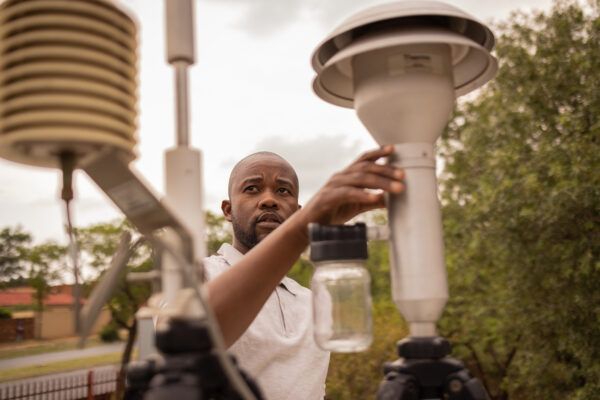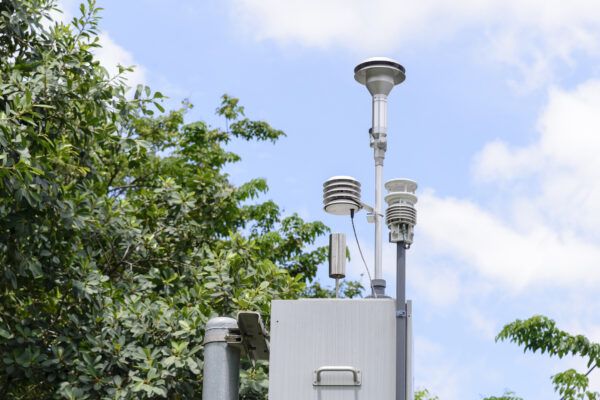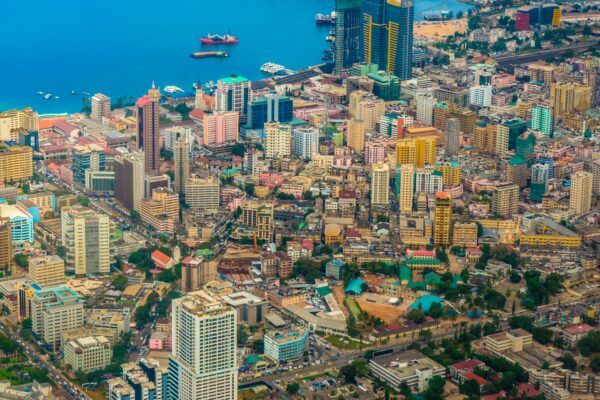A lack of comprehensive, timely, and globally accessible air quality data severely hampers efforts to track air pollution effectively. These data gaps also make it difficult for citizens to hold policymakers accountable for poor air quality levels or to know whether commitments to clean air measures are being implemented.
A recent paper by the Our Common Air Commission, Accelerating Country-led Air Quality Reporting to Achieve Clean Air, makes the case for tracking global progress and supporting national monitoring.
Gaps in national monitoring jeopardise wider progress
Many countries, particularly low- and middle-income countries, struggle with limited resources and infrastructure to track and manage their air quality levels. A 2022 survey of 119 countries found that insufficient funding for air quality management programmes was the greatest challenge facing air quality managers, followed by a lack of technical capacity and context-specific information.
Only 1% of international development funding goes to clean air initiatives, according to The State of Global Air Quality Funding 2024. Of that, just 6% is given in the form of grants — compared to the 63% of overall official development assistance delivered as grants. 92% of air quality funding was given as loans, of which only a third were provided at concessional rates. The high ratio of market-rate loans to concessional finance creates high costs for recipient countries. This likely limits lower-income countries from accessing vital assistance for monitoring infrastructure, as monitoring ambient pollution doesn’t generate revenue to repay loans.
Fragmented and inconsistent reporting across countries makes it hard for countries to compare data and learn from similar countries that are making good progress. Additionally, annual worldwide progress tracking of air quality data and policies would help incentivise governments to improve their air quality strategies while keeping them accountable.
Many regions lack real-time data or a unified system for reporting on pollutants. Even fine particulate matter pollution (PM2.5), the deadliest and most tracked air pollutant, doesn’t have an authoritative, regularly updated database that provides recent data.
Investing in global progress tracking
A country-led system for tracking international air quality progress and holding governments accountable is essential to global progress. As the Our Common Air commission lays out, this approach ensures no country is excluded and empowers governments to measure, share and model air quality data.
Any global system would need to build trust through transparent methodologies: making data open-source, and adopting standardised metrics for measuring and reporting air pollution.
The Our Common Air commission suggests starting with PM2.5, as this is the most ubiquitous and health harming air pollutant. Countries may also want to track other pollutants alongside PM2.5, such as black carbon and tropospheric ozone which contribute to climate change. Incorporating these climate super pollutants into existing climate frameworks, such as Nationally Determined Contributions (NDCs) under the Paris Agreement, allows for more integrated, less burdensome reporting mechanisms.
Some countries already include air pollutants in their NDC, and it is interesting that the majority of those that do are low- and middle-income countries. These nations, despite facing the highest pollution levels, are often left out of global solutions due to financial and technical barriers. By providing the right resources to countries taking the lead in their NDCs, we can ensure all countries can contribute to the global effort for clean air.
A comprehensive global system should not only focus on collecting data, but also ensure that every country can participate meaningfully. International cooperation is crucial for supporting national monitoring. Financial and technical support must be directed to low- and middle-income countries to build the capacity necessary for robust air quality monitoring. The current funding level is far too low, with a mere fraction of development aid directed toward air quality efforts.
Multilateral and bilateral development finance institutions need to increase the volume of funding for air quality, especially grant funding. To make real progress, we must increase financing, ensure participation, and implement transparent systems that track both pollution levels and policy actions.


